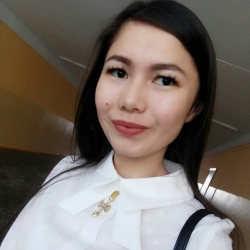AGlossary
Lecture 1-2
Abstract- Having an intellectual and affective artistic content that depends solely on intrinsic form rather than on narrative content or pictorial representation.
Acquaint- To cause to come to know personally;
Authentic Assessments- a form of assessment in which students are asked to perform real-world tasks that demonstrate meaningful application of essential knowledge and skills.
Build or invent- to design and/or create something that has never been made before;
Challenge or destroy- (the situation of being faced with) something that needs great mental or physical effort in order to be done successfully and therefore tests a person's ability;
Collaborative- Produced by or involving two or more parties working together;
Complex- Composed of two or more units
Coherence- the quality or state of cohering, especially a logical, orderly, and aesthetically consistent relationship of parts;
Creativity is defined as the tendency to generate or recognize ideas, alternatives, or possibilities that may be useful in solving problems, communicating with others, and entertaining ourselves and others;
Critical thinking is one of the most sought after qualities that employers look for in job candidates in almost any industry. It refers to the ability to analyze information objectively and make a reasoned judgment;
Cross cultural understanding simply refers to the basic ability of people within business to recognise, interpret and correctly react to people, incidences or situations that are open to misunderstanding due to cultural differences;
Digital skills- most knowledge-based activities depend heavily on the use of technology;
Dismiss- to decide that something or someone is not important and not worth considering.
Essential question- it is an open-ended question that sparks students interest and allow for multiple answers;
Feedback-the return of a portion of the output of a process or system to the input, especially when used to maintain performance or to control a system or process;
Figure out- A written or printed symbol representing something other than a letter, especially a number.
Innovation- a new idea or method, or the use of new ideas and methods;
Lifelong learning is the "ongoing, voluntary, and self-motivated"[1] pursuit of knowledge for either personal or professional reasons;
Open-ended- An open-ended activity or situation does not have a planned ending, so it may develop in several ways
Persuade or convince- to make someone do or believe something by giving them a good reason to do it or by talking to that person and making them believe it:
Predict- To state, tell about, or make known in advance, especially on the basis of special knowledge;
Provocative- causing thought about interesting subjects;
Project- a study of a particular subject done over a period of time, especially by students;
Project- based learning-Learning which requires students to coordinate time, work schedules and project outcomes in order to accomplish project goals on a predicted time schedule;
Real world- the practical world as opposed to the academic world;
Social responsibility -is an ethical framework and suggests that an entity, be it an organization or individual, has an obligation to act for the benefit of society at large;
Visualization or visualisation -is any technique for creating images, diagrams, or animations to communicate a message;

















